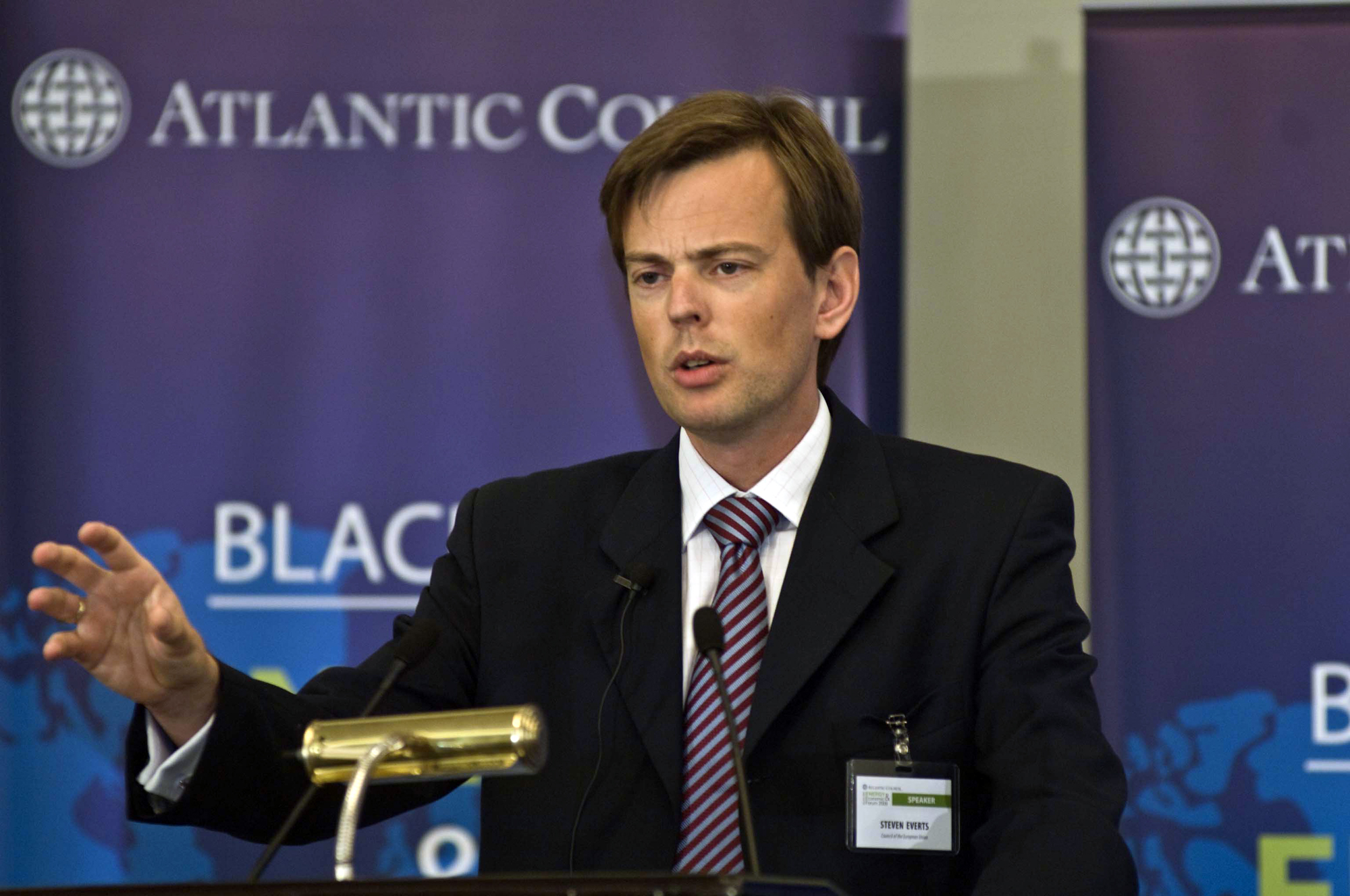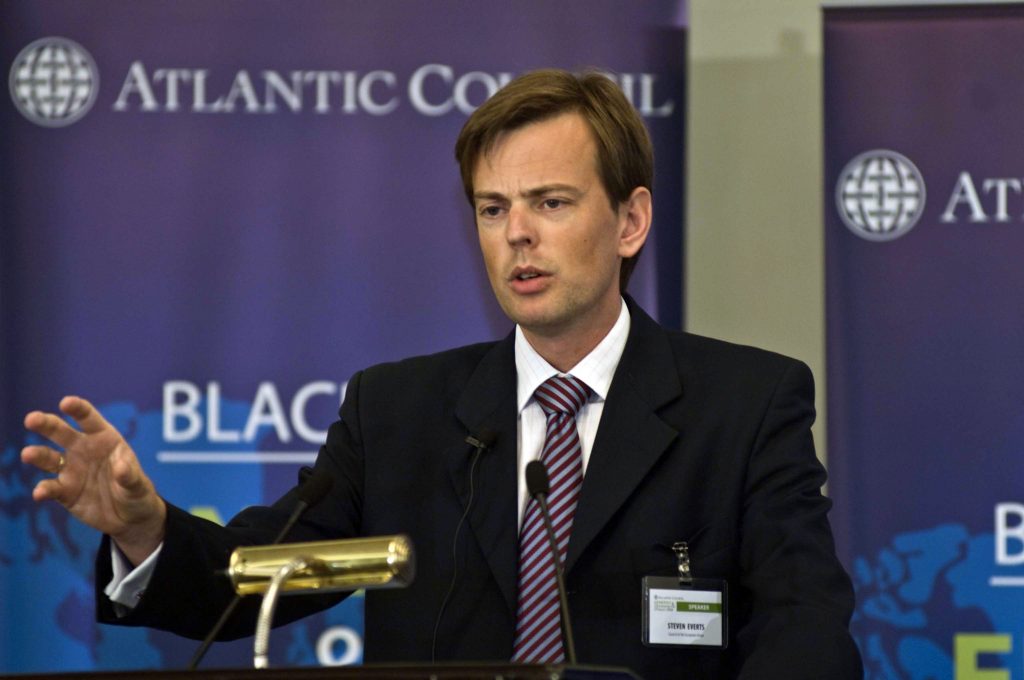
If EU policymakers and companies won’t go to Caspian energy producers with serious offers for their hydrocarbons, Caspian producers will just have to go to the EU. This seems to be the message sent by Azerbaijan and Kazakhstan as their state energy companies partner to build an oil pipeline heading to the West.
Plans for the so-called Baku-Black Sea pipeline were announced at the Atlantic Council’s Black Sea Energy and Economic Forum in Bucharest on Oct. 2 by Vitaliy Baylarbayov, Deputy Vice President of SOCAR, the state oil company of Azerbaijan. Kazakhstan’s KazMunaiGas and SOCAR will build the new route to connect Kazakhstan’s increasing oil shipments across the Caspian to tankers in the Black Sea, which will likely unload their cargo in Romania to be fed into the planned Pan-European Pipeline (PEOP) from Constanta to Trieste.
Now, in the face of EU reticence about engaging the countries of the Caspian for fear of angering Russia, Kazakhstan has effectively arranged for its own delivery of oil to South-Central Europe. Rompetrol is one of the major European companies that could contribute to the PEOP project, and KazMunaiGas just bought 100% of Rompetrol.
When it comes to Caspian oil, the mountain has come to Mohammed. But European decision-makers cannot expect the same to happen for the Caspian’s far more strategic resource: natural gas. Not only is it the EU that is desperately in need of alternative sources of gas to diversify away from dangerous dependence on Russia, but the biggest gas player in the Caspian, Turkmenistan, has a strict policy of only selling its gas on its borders. Turkmenistan’s Director of the State Agency for Management and Use of Hydrocarbon Resources, Yagshygeldi Kakaev, underscored this point at the Bucharest Forum, amongst counterparts from Bulgaria, Georgia, Romania and Turkey.
In practice, this means that Western companies would have to build a Trans-Caspian gas pipeline from Baku to Turkmenbashi, on the Caspian’s eastern shore, to connect with the planned Nabucco line to Central Europe. China, the EU’s primary competitor for Turkmen resources, has almost finished its own pipeline across Central Asia to Turkmenistan’s borders, and despite a dispute with Ashgabat, Russia will seek to resume importing Turkmen gas in early 2010, some of which will be resold to Europe for inflated prices.
Moreover, Kazakhstan has taken the initiative to string together its own pipeline network. Azerbaijan is positioning itself as a key energy producer and pivotal transit bottleneck between the Black and Caspian seas. Turkey is busy signing contract after contract to live up to its name as the world’s largest energy hub. Turkmenistan is courting consumers in Iran and South Asia, while Russia and China muscle in.
In short, the EU’s neighboring energy players are busy. Only Europe, the beggar not the chooser in Eurasia’s energy game, is inactive. While the Lisbon Treaty and a new EU Commission have drawn the Union’s attention inward, neither Brussels nor European capitals should expect to have their energy security handed to them.
Alexandros Petersen is Dinu Patriciu Fellow for Transatlantic Energy Security and associate director of the Eurasia Energy Center at the Atlantic Council.
